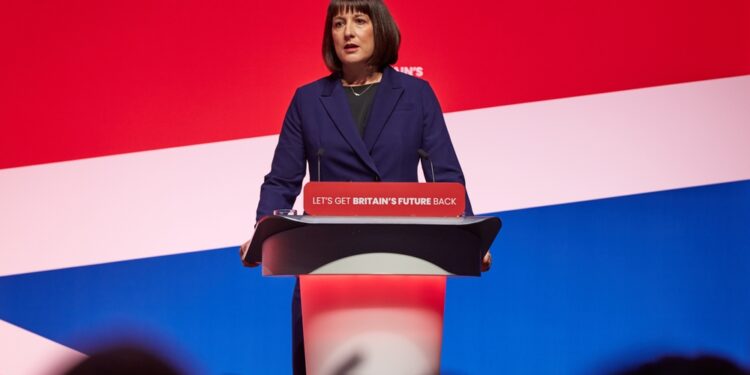Millions of employees could face a poorer retirement if the Chancellor levies National Insurance on pension contributions in this month’s Budget, according to industry concerns.
The Institute for Fiscal Studies estimates that this could raise up to £17bn for the Treasury, which is looking to plug a potential £22bn black hole in the nation’s finances.
Consultants and pension providers are urging Rachel Reeves not to go down this route, saying it could lead to employers reducing more generously-funded workplace pension schemes.
This latest speculation comes as both the Prime Minister and Chancellor refused to rule out raising the rate at which employers pay National Insurance. Employers currently pay National Insurance of 13.8 per cent on all earnings above £175 per week but do not pay National Insurance on pension contributions — there are fears that this could be changed in the Budget.
Pension specialists said the introduction of NI on pension contributions would counter the progress that has been made to increase pension provision via auto-enrolment. The cost of this change is also likely to disproportionately affect companies offering more generous pension schemes, including those offering defined benefit pensions in the public sector.
The introduction of NI on pension contributions would seriously restrict the benefits of firms offering salary sacrifice schemes. This is used by many companies and can encourage workers to boost pension provision while also reducing both the employee and employer’s NI bill.
Removing this would reduce the take-home pay of those in these schemes, which pension experts say would potentially break manifesto promises.
Pension specialist Husky Finance CEO Brendan Shanks says: “This would be a huge own goal for the new Government as it attacks auto-enrolment into pensions, which is probably the single biggest UK government policy success in my working lifetime, creating over 10 million new pension savers since it started in 2012.
“If Reeves removes the benefit of salary sacrifice on pensions, nearly 7 million workers will have their net pay decreased, which is a tax rise on working people, and employers will face a large increase in costs and a huge admin burden to deal with. With UK firms struggling and nearly half of UK households unable to deal with an unexpected £300 bill, this move would be a terrible mistake.”
In its manifesto, Labour pledged not to raise NI, income tax, or VAT, but politicians have since clarified that this promise applies to rates paid by workers or employees.
Barnett Waddingham partner Martin Willis adds: “As the first Budget of the new Labour Government draws closer, there have been some clear expectations we will see cost cuts come October 30th, and pensions will likely be in their sights one way or another.
“We’ve recently seen rumours that the Government could consider removing National Insurance relief on the pension contributions businesses make to their employees.
“While still speculation, it’s important to consider what impact this change could have if it were to come into effect. Notably, unlike a rate increase — as seen briefly in 2022 — sectors where employers fund generous pension schemes, whether defined benefit or defined contribution, would likely be most affected by this. And concerningly, for businesses where funding is already tight, it’s likely this could indirectly impact employees’ pensions.”
Meanwhile the Society of Pension Professionals said that imposing NI on these pension contributions would almost certainly mean these costs are passed onto employees.
Chair of the SPP tax group Steve Hitchiner says: “The government might argue that this does not technically break a manifesto commitment, as it relates to the employer’s contributions, but the reality is that the cost will almost certainly be passed on to employees. As SPP highlighted in the tax report it published earlier this month, this would be in the form of lower pension contributions for DC schemes and benefit redesign or closure for DB schemes.”
The Association of British Insurers (ABI) and the Reward and Employee Benefits Association (REBA) — who conducted a poll of business decision makers — are warning that this would mean millions of employees facing a poorer retirement as a result.
The survey found that the removal of employer NI relief could have long-term detrimental effects on workers’ pension savings. Three quarters of employers who answered the survey pay contributions greater than the auto-enrolment minimum. Nearly half (42 per cent) of them would reduce these more generous contributions, and two thirds (63 per cent) would be less likely to increase contributions in the future.
Many firms said they would stick to the minimum required contribution in future. A reduction in investment in other areas of employee benefits, as well as reviewing their future approach, was also mentioned. Only 40 per cent would try to retain current contribution levels despite the increased cost.
The ABI and REBA said that even for those employers who don’t pay anything beyond the minimum, this increased taxation of pension contributions would still add to the overall cost of staff.
The ABI director of policy, long-term savings and health & Protection Yvonne Braun says: “We want to see money flowing into pensions to drive growth, and we also want employers to be incentivised to provide good pensions for their workers. These changes would have a negative impact on both. They would also mean lower retirement standards in the future at a time when we’re already not saving enough for the long term.”
It is understood that Reeves has stepped back from plans to reform pension tax relief in this Budget, due to complications around DB schemes. However there are also expectations that she may reduce the amount that can be taken as tax-free cash and potentially include pensions when calculating the value of estates for inheritance tax purposes.





